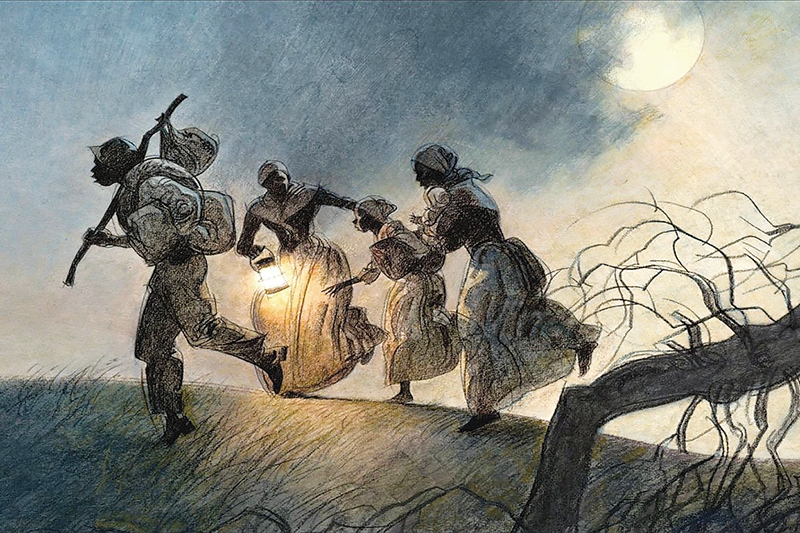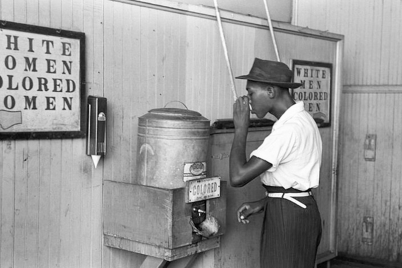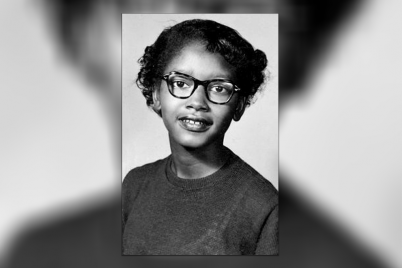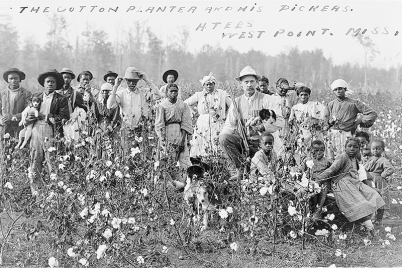Slaves prepared their escapes on Thanksgiving Day.
BY JENNIFER GAMBLE-THEARD, M.ED, ASALH Historian
We were blessed with another year of coming together with family and friends to celebrate the time-honored Thanksgiving tradition. For many African Americans, Thanksgiving Day can be a huge family gathering where soul food–rich with its own flavors and history–becomes the main ingredient as a show of love.
Usually, Thanksgiving Day is a good day filled with light interactions when many give the better part of themselves, usually.
Thanksgiving is known as the true American holiday, yet various methods of expressing thankfulness–to a higher power, to the land, to elders, etc.–is celebrated in other parts of the world in different ways. Other than just following the broad American culture to celebrate Thanksgiving, just where do African Americans historically fit into this American holiday scheme? After all, as a culture group, we have origins on this land mass since the 1600s.
Let’s first look at the big picture of the origins of Thanksgiving. As we look back in history in the autumn of 1621, two years after Africans arrived in North America in 1619 in Jamestown, Va., we might think that this time of year pinpoints the beginning of the massive take over of Native American land by European invaders. This was when things became very conflicted for both indigenous and black people.
As the history we are taught in school goes, the Europeans were thankful for the help that they had been given in a strange new land by the Native Americans. During the time before the winter season in a location around what is now Massachusetts, the Native Americans and the new European settlers (Pilgrims) from England shared a great feast together in thanksgiving for an abundant harvest and new friendships.
It is believed that this occasion was the seed that eventually evolved into the Thanksgiving holiday in the United States.
Although the Native Americans and European settlers were considered together as the originators of our long-lasting holiday, perhaps the Native American influence of that time had an even greater impact on the true spirit of Thanksgiving. Each year before the winter began, it was the practice of indigenous cultures of North America to express gratitude, sharing and giving away in communal festivities that became translated as “partakers of our plenty.” It is basically the same concept as our Thanksgiving or fall harvest festivals.
The holiday took a few hundred years to morph into the mega day that it is today. In the early 1800s, fall harvest celebrations were mainly regional and scattered around different states.
The government was searching for something to be a sanctifying promoter of national spirit. An event was needed, for example, that already had a history and could become cherished by many in the cities and remote areas of the growing country. Something was needed that could appeal to northern states and southern states.
Our modern Thanksgiving celebration originated during a tumultuous period in the United States. President Abraham Lincoln issued a proclamation on Thursday, Nov. 26, 1863, calling for a day of national thanksgiving on the fourth Thursday for all Novembers to come.
Lincoln proposed that God ordained this holiday. In his writings, he said, “While gratitude based on temporal things will eventually fail us, Thanksgiving is an act of communion with eternal God. As such, it anchors us to something that will last forever.”
Lincoln went on to explain that the Bible speaks of thanksgiving as part of the antidote needed for the anxiety of war.
In 1860, poet Sara Josepha Hale promoted Thanksgiving Day in her writings. She wrote: “We believe our Thanksgiving Day, if fixed and perpetuated, will be a great and sanctifying promoter of this national spirit.”
The nation in turmoil took Lincoln’s words as a sign from God. For the enslaved, it was like biblical inspiration from God that gave them peace, for the words to aspire for a Thanksgiving Day. In 1861, there were uplifting and familiar sermons that had been delivered by ministers such as Rev. Benjamin Morgan Palmer where he addressed the struggles, hopes, fears, triumphs that enslaved people longed to hear.
During the Civil War, some slaves prepared their escapes on a given Thanksgiving Day. They plotted to flee during the holiday festivities when many were not around or too busy to notice.
Also during this holiday, many slaves were able to obtain passes off the plantation in order to visit a nearby location to see separated family members. It became an opportunity to escape, as they fled with the hope of finding family who had been separated from them during slave auctions. Or at least one might have been able to seek out an underground railroad headed north.
Thanksgiving Day is a most relevant holiday for us of African descent because we have been a part of a significant movement in history outside of our motherland in Africa. Let us reflect on how Thanksgiving became a reason for African Americans to lift up in praise for this holiday.
Jennifer Gamble-Theard, M.Ed. is a retired Pinellas County educator in the study of history and language. She is also the historian for the St. Petersburg Branch of ASALH.








